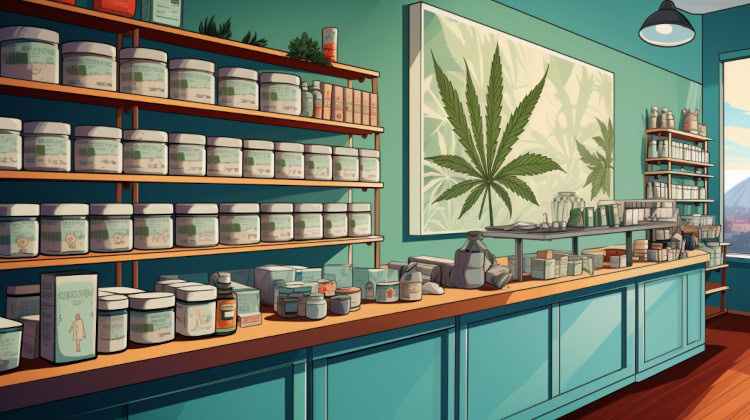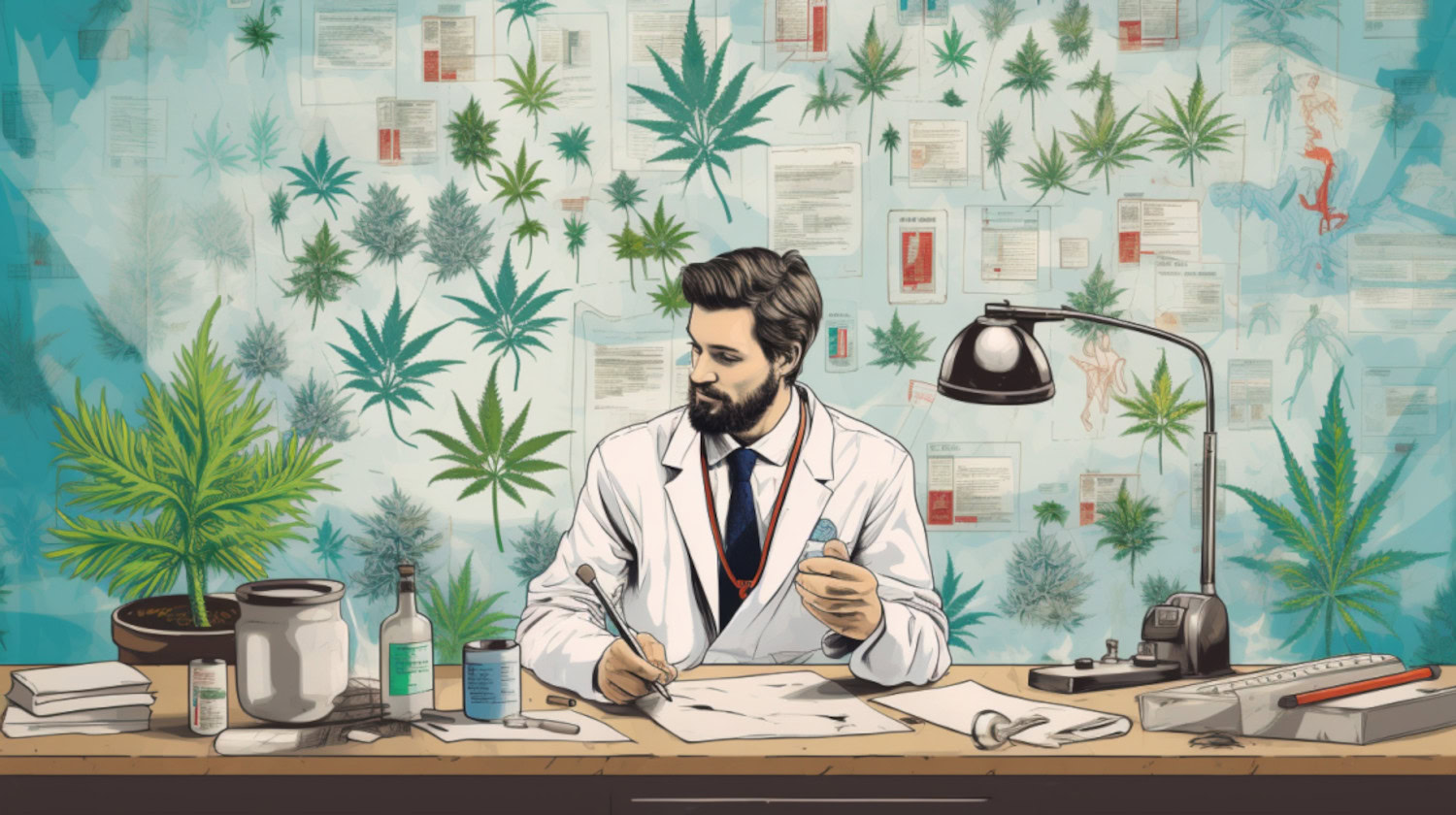Key Takeaways
- Depression is a common mental health condition.
- CBD can be an effective and safe way to manage depression symptoms.
- Before adding CBD to your daily routine, consult with a doctor.
Depression is a mood disorder that’s common in the US. Anyone can be impacted by depression, regardless of gender, age, and life situations. In fact, about 5% of adults deal with depression globally.
Many people with depression are curious about whether or not CBD can be an effective treatment option. CBD is a natural compound with a variety of health and wellness benefits, but is treating depression one of them? What are the effects of using CBD for depression?
What is Depression?
Depression is a common mental health condition, but it’s also an umbrella term that covers many different mental health diagnoses. There are many different types of depression, including major depression and perinatal depression.
Everyone’s experience with depression is unique, but some of its symptoms include:
- Fatigue
- Feeling sad or empty
- Changes in sleep (sleeping too much or too little)
- Changes in appetite
- Digestive issues
- Feeling guilty or worthless
There are a variety of treatment options typically recommended for those with depression. Some people take medication, such as an SSRI, while others consider therapy. Many people find that they get the best results when they utilize a combination of treatment options.
For some patients, CBD could be a positive addition to their treatment routine. But how does using CBD for depression work?
Benefits of Using CBD for Depression

Research on CBD for depression is still in its early stages, but early findings show promise.
One study found that 53% of participants reported feeling better overall after using CBD. Interestingly, this same paper noted that 88% of respondents felt more inclined to use CBD than a prescription drug for depression.1
One great thing about using CBD for depression is that there are relatively few side effects. While everyone responds to CBD differently, most people won’t experience significant adverse effects. CBD is generally considered safe to use when taken appropriately.
Research has found that CBD may have a unique ability to treat depression compared to traditional medications that interact with monoaminergic pathways. This may suggest that CBD could be beneficial for people who are resistant to conventional treatment options.2
When taking gummies for depression, there may be other benefits, as well. From a potential reduction in anxiety to possibly improving stress, there are so many reasons why CBD is seen by many as a beneficial compound.3
When it comes to using CBD for depression, dosage likely plays a significant role. One study found that 300mg/day of CBD was an effective dose for many participants.4 That being said, the proper dosage for each individual can vary. If you’re not sure how much CBD you should take, it’s typically recommended that you start low and go slow—it’s always better to remain cautious!
CBD and Depression: Are There Any Risks?
The good news is that most people tolerate CBD very well. However, a few risks are important to discuss.
One of the most significant risks of using CBD for depression isn’t the CBD itself but the combination of CBD and antidepressants. If you take any medications, you should always speak with the prescriber before taking CBD. This is the best way to make sure there aren’t any potential interactions that could cause harm.
Another thing to keep in mind is your liver health. If you’ve had concerns with your liver in the past, then you’ll want to speak with your doctor before taking CBD. While CBD may still be an option for you, you’ll want to get approval from a professional to stay safe.5
CBD as a Treatment for Depression

While CBD may help reduce certain symptoms of depression, many people get the best results when they combine multiple treatment options.
When it comes to using CBD for depression, it’s important to find what works well for you. Choosing to implement CBD can be a great option, but many people may benefit from a holistic treatment routine. If you’re not sure what this could look like for you and how CBD could fit into your new routine, consider making an appointment with your doctor to discuss all your different options.
Tips for Using CBD for Depression
If you’re ready to start using CBD for depression, there are a few things you’ll want to keep in mind.
One important thing to think about is dosage. If you’re not sure how much CBD to take, it’s best to start low and go slow.
Consider starting with 2.5-5mg of CBD a day and then increasing by 2.5-5mg increments from there (if needed).
Using gummies for depression can be a great option compared to other methods of consumption, especially if you’re new to CBD. This can be a good way to eliminate guessing your dosage and know exactly how much you’re consuming.
Ask a Budtender: Which CBD Products are Best For Depression?

It’s important to remember that not all CBD is equal. Just because a product has CBD doesn’t necessarily mean it’s safe or effective.
When it comes to picking the right method of consumption, consider your lifestyle and CBD experience. If you don’t have as much experience, it may be best to go with a low-dose gummy or capsule option. Those on a tight budget might consider a tincture, as you can get high-CBD dosages for a lower price.
Some research on CBD for depression has found that higher doses may work best for participants (many report that 300mg/day is effective).4 It’s still recommended that new users start with a lesser amount and then work up to a higher dose in the future.
One great way to stay safe is to purchase products from brands participating in lab testing. Knowing what is actually in the product you’re consuming can be difficult without lab testing. Opting to buy from brands that put their products through rigorous testing is a good way to ensure that you’re not only on the right track but don’t need to worry about anything concerning in your CBD.
From gummies to tinctures, there are so many different options when it comes to using CBD for depression. Don’t be afraid to do your research or stop by a local dispensary to ask them questions.
References
- Wieckiewicz G, Stokłosa I, Stokłosa M, Gorczyca P, Pudlo R. Cannabidiol (CBD) in the Self-Treatment of Depression-Exploratory Study and a New Phenomenon of Concern for Psychiatrists. Front Psychiatry. 2022;13:837946. doi:10.3389/fpsyt.2022.837946 ↩︎
- Pinto JV, Saraf G, Frysch C, et al. Cannabidiol as a Treatment for Mood Disorders: A Systematic Review. Can J Psychiatry. 2020;65(4):213-227. doi:10.1177/0706743719895195 ↩︎
- García-Gutiérrez MS, Navarrete F, Gasparyan A, Austrich-Olivares A, Sala F, Manzanares J. Cannabidiol: A Potential New Alternative for the Treatment of Anxiety, Depression, and Psychotic Disorders. Biomolecules. 2020; 10(11):1575. https://doi.org/10.3390/biom10111575 ↩︎
- Pinto JV, Crippa JAS, Ceresér KM, et al. Cannabidiol as an Adjunctive Treatment for Acute Bipolar Depression: A Pilot Study: Le cannabidiol comme traitement d’appoint de la dépression bipolaire aiguë : une étude pilote. The Canadian Journal of Psychiatry. 2024;69(4):242-251. doi:10.1177/07067437231209650 ↩︎
- Millar SA, Maguire RF, Yates AS, O’Sullivan SE. Towards Better Delivery of Cannabidiol (CBD). Pharmaceuticals. 2020; 13(9):219. https://doi.org/10.3390/ph13090219 ↩︎
The information in this article and any included images or charts are for educational purposes only. This information is neither a substitute for, nor does it replace, professional legal advice or medical advice, diagnosis, or treatment. If you have any concerns or questions about laws, regulations, or your health, you should always consult with an attorney, physician or other licensed professional.




